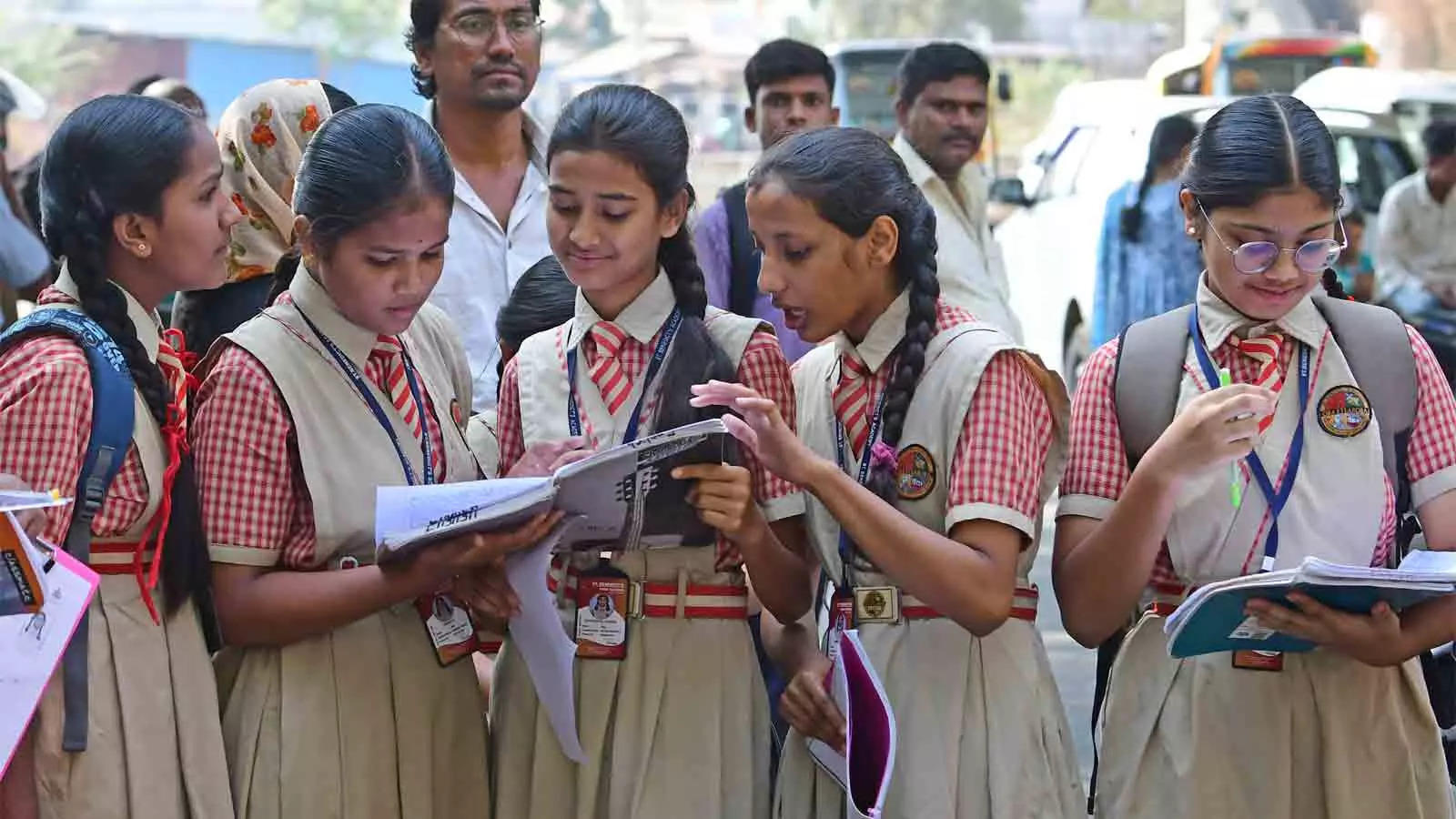[ad_1]
Most difficult Board exams of India
In keeping with the PARAKH report, Tripura emerged because the state with the very best proportion of ‘laborious’ questions. Maharashtra intently adopted, with Goa, Chhattisgarh, and West Bengal rounding out the highest 5. These states constantly introduced college students with the next problem, demanding a deeper understanding of ideas and problem-solving skills.
Boards with the Highest Proportion of Onerous Questions
Within the PARAKH evaluation of the 5 instructional boards, Chhattisgarh college students fared higher since their exams included a comparable share (47.62%) of ‘straightforward’ questions. However, Goa’s exams consisted of solely ‘laborious’ and ‘medium’ stage questions, with ‘medium’ questions making up 55.34% and no ‘straightforward’ questions in any respect. In keeping with the PARAKH report, Maharashtra’s exams featured an equal distribution of ‘straightforward,’ ‘laborious,’ and ‘medium’ questions.
Outlined: Simple, Medium and Onerous
The report categorises questions into three ranges: straightforward, medium, and laborious. Whereas ‘straightforward’ questions are anticipated to be answered accurately by a majority of scholars, ‘laborious’ questions pose a problem to most.
Simple Questions: Simple questions are those who a big majority of learners, who’ve been uncovered to the related studying alternatives, can be anticipated to reply accurately. These questions are designed to evaluate fundamental understanding and data that almost all college students are prone to have mastered.
Medium Questions: Medium questions are those who require a average stage of understanding and utility of information. These questions would sometimes be answered accurately by a considerable portion of learners, although not as excessive as these answering straightforward questions. They’re meant to evaluate a deeper stage of understanding and the power to use data in additional advanced methods.
Onerous Questions: Onerous questions are those who solely a minority of learners would be capable of reply accurately. These questions are designed to problem college students’ higher-order considering expertise and their capacity to use data in novel or advanced conditions. They assess the depth of understanding and the power to synthesise and consider data.
Board exams with straightforward to medium stage issue
The PARAKH research analysed query papers from 17 faculty schooling boards, together with these in Punjab, Haryana, Uttar Pradesh, Andhra Pradesh, Uttarakhand, Gujarat, Manipur, Odisha, Nagaland, Himachal Pradesh, and Kerala. Moreover, the Council for the Indian Faculty Certificates Examinations (CISCE), which conducts ICSE and ISC exams, was included. The report concluded that almost all of questions throughout these boards fell throughout the ‘straightforward to medium’ issue vary.
Cognitive Calls for of various Board exams
The PARAKH evaluation additionally evaluated the ‘cognitive demand’ of query papers throughout 17 faculty boards, figuring out the proportion of questions testing rote reminiscence versus understanding. Right here is the abstract of the findings for chosen boards:
Disparity in Board examination issue stage, a reason behind concern
The findings of the PARAKH report have raised issues concerning the disparity within the issue stage of board exams throughout states. Whereas some argue that difficult exams promote educational rigour and determine prime expertise, others categorical apprehensions concerning the potential damaging impression on college students’ psychological well being and general studying expertise.
Training specialists have referred to as for a complete evaluation of the board examination construction and a standardised analysis course of to make sure honest evaluation of scholars’ skills. They emphasise the significance of balancing the necessity for rigorous analysis with the general well-being and holistic improvement of scholars. As the talk on examination requirements intensifies, it’s essential to discover a answer that promotes educational excellence whereas making certain equitable alternatives for all college students.
Disclaimer:This text relies on the data accessible within the PARAKH report. For essentially the most correct and up-to-date particulars, please confer with the unique report.
[ad_2]
Source link
This Publish could comprise copywrite



